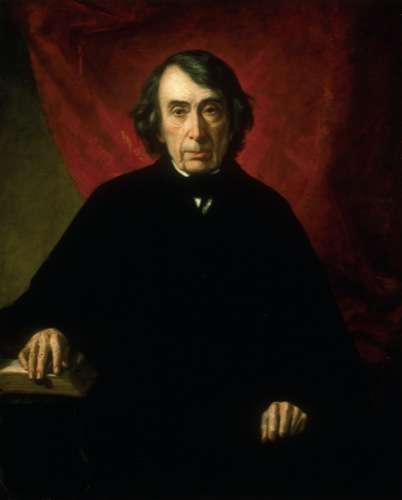The Volokh Conspiracy
Mostly law professors | Sometimes contrarian | Often libertarian | Always independent
Today in Supreme Court History: March 17, 1777
3/17/1777: Chief Justice Roger Brooke Taney's birthday.

Editor's Note: We invite comments and request that they be civil and on-topic. We do not moderate or assume any responsibility for comments, which are owned by the readers who post them. Comments do not represent the views of Reason.com or Reason Foundation. We reserve the right to delete any comment for any reason at any time. Comments may only be edited within 5 minutes of posting. Report abuses.
Please to post comments


Patton v. Brady, 184 U.S. 608 (decided March 17, 1902): upholding extra tax on already taxed goods (on manufactured tobacco under War Revenue Act of 1898, Spanish-American War)
United States v. Florida, 420 U.S. 531 (decided March 17, 1975): Submerged Lands Act of 1953 supersedes Florida’s 1868 State Constitution insofar as setting seaward boundaries
First Nat’l Bank of Columbus, O. v. Louisiana Highway Comm’n, 264 U.S. 308 (decided March 17, 1924): jurisdictional minimum for diversity (then $3,000) not met where plaintiff alleged loss of land that would have been worth more than that if government had routed highway correctly
Tank Truck Rentals, Inc. v. Comm’r of Internal Revenue, 356 U.S. 30 (decided March 17, 1958): trucker can’t deduct fines for innocent (as opposed to willful) weight violations for income tax purposes
U.S. Dept. of Agriculture v. Remund, 330 U.S. 539 (decided March 17, 1947): Farm Credit Administration is “United States” under 31 U.S.C. §191 (now 31 U.S.C. §3713) and therefore unpaid debt due it by decedent takes priority in probate
Metropolitan Cas. Ins. Co. v. Stevens, 312 U.S. 563 (decided March 17, 1941): Removal did not used to be self-executing; the state court had to order it, and one could appeal the order (in state court of course). Or one could just go to federal court. This case shows the mess that resulted, and set rules as to what proceedings were valid when the dust settled.
Staten Island Rapid Transit Ry. Co. v. Phoenix Indem. Co., 281 U.S. 98 (decided March 17, 1930): This New York case is an example of the rarely-used (and to my mind under-used) “statement of agreed facts” (now CPLR R. 3222), which allows one to bring a suit in the first instance in the Appellate Division. Here, the Court upholds a statute allowing an insurer to recoup worker’s compensation benefits after a wrongful death suit settled.
FTC v. American Tobacco Co., 264 U.S. 298 (decided March 17, 1924): tobacco company did not have to comply with FTC investigation authorized by Senate; statute allowed FTC to investigate only if antitrust laws alleged to be violated (and none were alleged here)
South Dakota v. Collins, 249 U.S. 220 (decided March 17, 1919): An example of a state suing an individual directly in the Supreme Court under the Court’s original jurisdiction. Here, the state treasurer pocketed interest on the state’s bank accounts. It’s amazing that he thought he could get away with it. He didn’t.
Burrow-Giles Lithographic Co. v. Sarony, 111 U.S. 53 (decided March 17, 1884): posed photo is copyrightable (this was the famous photo of Oscar Wilde, https://iconicphotos.wordpress.com/2009/07/08/oscar-wilde-no-18)
It’s amazing that he thought he could get away with it. He didn’t.
I assume his mistake was not sharing it...
Ha — !
Too lazy to look it up: why would a state need to sue someone at the Supreme Court if that person embezzled money from the state?
I’m equally lazy but . . . maybe they had a sure winner of a case and wanted to send a message to other potential embezzlers by winning in the loudest manner possible?
Nowadays, wouldn't the Court refuse to take the case under its self-assumed power of work-avoidance?
The Oscar Wilde photo didn’t come through for me, but I found it on Wikipedia:
https://en.wikipedia.org/wiki/Burrow-Giles_Lithographic_Co._v._Sarony#/media/File:Oscar_Wilde_MET_DP136272.jpg
Thanks
Will fix the link
"Tank Truck Rentals, Inc. v. Comm’r of Internal Revenue, 356 U.S. 30 (decided March 17, 1958): trucker can’t deduct fines for innocent (as opposed to willful) weight violations for income tax purposes"
You hear that? Make sure you intentionally violate the weight limits so you can get that tax deduction!
Looks like Phil Spector.
Technically, Spector looks like this guy. Only uglier.
...and crazier?